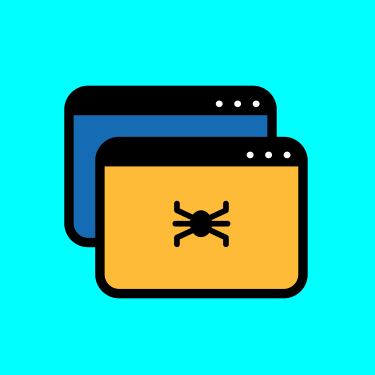
Samples
 How to protect your devices from malware
How to protect your devices from malware
It's not a surprise that hackers have gotten much smarter during the last few years. Sadly, modern programming tools make it easier to create malware, and underground forums allow cyber criminals to exchange code, libraries, and so on. Btw, malware is a generic term that's used to define hostile software, applications that will harm your computer and/or steal important information from it.
There are several types of malware. Here are the most important ones:
1. Viruses have the capability to replicate themselves, just like biological viruses. Once that a file is infected, the virus will copy its code to the next executable that is found in the device's storage, and so on. To get activated, a virus needs to be allowed to run. Cyber criminals will often trick users into executing viruses by attaching them to emails and giving them enticing file names.
2. Worms are malware applications which claim to be legitimate software. Lots of worms come bundled with so-called system applications, and sometimes even with "antiviruses"! By installing that fake antivirus, the unsuspecting victim will actually infect his/her own computer!
3. Rootkits are advanced viruses that can take control over the OS, intercepting system calls, and thus making it very difficult for antiviruses to do their job. This makes it virtually impossible to get rid of them without booting the computer from a clean startup disk, and then running a dedicated rootkit cleaning application.
4. Spyware is a type of malware that will spy on your activities. Most spyware will log all your keystrokes, will capture screenshots, and sometimes will even record videos of your activity! Then, all this data is silently uploaded to the hacker's server, being ready to be filtered, and then used against the victim.
5. Adware is often bundled with free software, displaying unsolicited ads on people's computers. This type of malware achieves its goal by hijacking the browser's home page, changing the default search engine, installing undesired browser extensions, and so on.
6. Ransomware will encrypt the user's data, and then ask for a ransom. A red pop-up will be displayed as soon as all the files are encrypted. According to its text, the hacker will send the victim a data decryption key once that the money arrives in his or her account. Most of the time cyber criminals will just take people's money, though.
So, you can see that we're talking about a great variety of cyberthreats. In fact, there are even more, but the ones above are the most frequent ones. To stay safe, you will need to install an anti-malware application. Most top of the line antiviruses include anti-malware modules these days, but you can also purchase dedicated malware removal software.
Windows Defender, which comes bundled with Microsoft Windows, is a decent anti-malware application, especially when you combine it with the free version of MalwareBytes Anti-Malware, for example. If you run a small business, you owe it to yourself to invest in a good, paid antivirus. My recommendation is to pick either Kaspersky Antivirus or Bitdefender, which provide full system protection at an affordable price.
In the end, don't forget that even the best antiviruses may make mistakes. They may flag clean files as being infected, and infected files as being clean. This is why it's mandatory to back up your devices regularly. Fortunately, most OSs include powerful, and yet easy to use system backup tools.